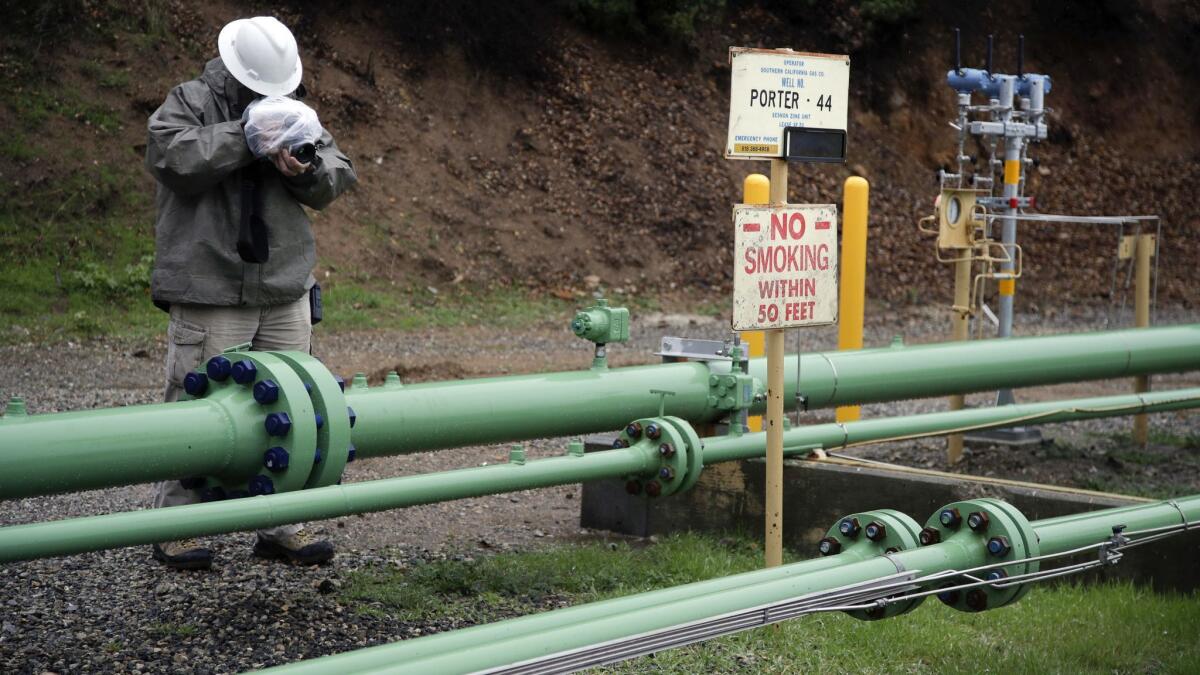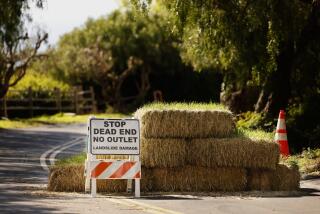State regulators weigh penalties against Southern California Gas for Aliso Canyon leak

Reporting from SAN FRANCISCO — California regulators opened an investigation Thursday to consider penalties against Southern California Gas Co. for a massive 2015 natural gas leak blamed for sickening thousands of nearby residents and forcing them from their homes.
The California Public Utilities Commission made the decision in the wake of a May investigative report that concluded that the blowout at the Aliso Canyon gas well in Los Angeles resulted from a corroded pipe casing, safety failures by the utility and inadequate regulations.
The gas company failed to investigate previous well failures at the storage facility and didn’t adequately assess its aging wells for disaster potential before the Oct. 23, 2015, blowout, the report concluded.
The utility has 30 days to submit information to the PUC to show why it shouldn’t be sanctioned, the commission said.
Also Thursday, the commission opened an investigation against Southern California Gas and its parent, Sempra Energy, to determine whether their corporate culture and operations made safety a priority.
“The safety of our employees, the public and the environment is at the heart of everything we do. Safety is not just part of our culture, it is the foundation that has helped our business thrive for more than 150 years,” gas company spokesman Chris Gilbride said in a statement. “We look forward to supporting the commission’s review and welcome its recommendations.”
The Aliso Canyon blowout lasted nearly four months, led to the largest known release of methane in U.S. history and was blamed for sickening thousands of residents, who moved out of their Porter Ranch homes in the San Fernando Valley to escape a sulfurous stench and a medley of maladies including headaches, nausea and nosebleeds.
In a study that appeared Wednesday in the peer-reviewed journal Environment International, researchers said air quality samples collected near the site during the blowout showed elevated levels of pollutants “known or suspected to be associated with serious health problems.”
The study was conducted by UCLA’s Fielding School of Public Health.
New requirements put into place by state regulators after the blowout led to many of the wells being overhauled and updated and many others being sealed. The field is also not allowed to operate at full capacity.
Southern California Gas has spent more than $1 billion on the blowout and faces hundreds of lawsuits. It also reached a $120-million court settlement with the state attorney general and agreed to a $4-million settlement with Los Angeles County prosecutors after being convicted in Superior Court of failing to quickly report the leak to state authorities.
More to Read
Sign up for Essential California
The most important California stories and recommendations in your inbox every morning.
You may occasionally receive promotional content from the Los Angeles Times.









